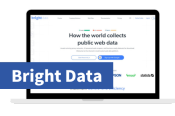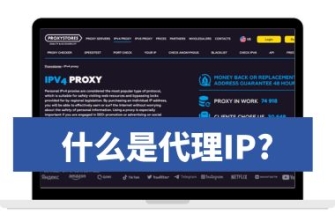The Fastest US Residential Proxy Server in 2024

The Role of US Static Residential Proxy Server
US Static Residential Proxy Server play a crucial role in providing online anonymity, data security, and freedom of content access. As technology advances and the market matures, the use of these Proxy Server is becoming more widespread and convenient. Both corporate and individual users can benefit significantly from utilizing Static Residential Proxy Server, ensuring network security and privacy while enjoying the conveniences offered by the internet.
This article will discuss key factors such as IP stability, bandwidth and speed, geographical distribution, pricing and payment options, as well as customer support and after-sales services to help you choose the best US Static Residential Proxies provider to ensure reliable protection of your privacy and online security.
Definition and Features of US Static Residential Proxies:
Static Residential Proxy Server are fixed IP addresses assigned to individual residential networks, provided by Internet Service Providers (ISP) and do not change frequently. Compared to traditional dynamic IPs or Datacenter Proxy Server, Static Residential Proxy Server offer higher stability and reliability. As they originate directly from real residential networks, these Proxy Server are less likely to be detected and blocked during online activities.
To clarify the definition and features of "US Static Residential Proxies," we will distinguish and explain them based on the two key terms "static" and "residential" as shown in the following table:
| Feature | Static Proxies | Residential Proxies |
|---|---|---|
| Definition | Static Proxy Server are addresses that remain constant over long periods and do not change as frequently as dynamic IPs. | Residential Proxy Server are addresses assigned to a personal residential network, provided by ISPs and linked to actual residential addresses. |
| Stability | High stability as the IP address remains unchanged, suitable for scenarios requiring long-term stable connections. | Compared to Datacenter Proxy Server, Residential Proxies are generally seen as more credible sources, thus less likely to be banned or restricted during web access or data collection. |
| Anonymity | Static IP addresses can provide a continuous online identity but also mean that the user’s online activities can be more easily tracked. | Because they come from real residential networks, Residential Proxies offer greater anonymity in activities like anonymous access and data scraping, making them harder to identify as proxies. |
| Usage | Suitable for applications requiring the same IP address over a long period, such as online gaming, remote work, etc. | Commonly used for data collection, bypassing geographical restrictions, and personal privacy protection. |
| Cost | Generally more expensive than dynamic IPs due to the resources needed to maintain a stable IP address. | Usually more expensive than Datacenter Proxy Server, as they originate from real user networks, offering higher legitimacy and security. |
In summary, US Static Residential Proxies combine the stability of static IPs with the anonymity of Residential Proxies, making them both stable and discreet network tools. These types of Proxy Server are particularly suited for applications that require long-term connection stability and high levels of anonymity.
| Merchant | product | Price | Reviews |
|---|---|---|---|
| Proxy-seller | IPv4 Proxy | $ 1.07/month | 5.00 |
| IPRoyal | Static Residential Proxies | $ 2.40/proxy/month | 4.98 |
| Proxy-Cheap | Static Residential Proxies | $ 3.49/proxy/month | 4.96 |
| Proxyline | Shared IPv4 Proxies | $ 0.99/proxy/month | 4.95 |
| Oxylabs | Static Datacenter Proxies | $ 1.50/proxy/month | 4.91 |
| Smartproxy | Datacenter Proxies | $ 0.09/month | 4.90 |
| Bright Data | Datacenter Proxies (Shared) | $ 0.20/proxy/month | 4.86 |
| Proxysale | IPv4 Proxies | $ 2.14/proxy/month | 4.68 |
| Webshare | Static Residential Proxies | $ 30.00/100 proxies/month | 4.65 |
| LunaProxy | Rotating Residential Proxies | $ 0.70/GB | 4.65 |
| Lumiproxy | Static Residential Proxies | $ 6.00IP/month | 4.62 |
| Spaceproxy | IPV4 Proxy | $ 1.77/proxy/month | 4.56 |
| Youproxy | IPv4 Proxy | $ 1.30/proxy/month | 4.40 |
| PIA Proxy | Hot Plan Proxy Servers | $ 0.24/proxy/day | 4.30 |
| 922 S5 Proxy | Rotating ISP Proxy | $ 0.04/IP minimum | 4.25 |
| IP2World | Static Residential Proxies | $ 4.80/proxy/month | 4.00 |
| Proxystores | IPV4 Proxy Server | $ 1.77/proxy/month | 4.00 |
| Proxys.io | Shared IPv4 Proxies | $ 0.67/proxy/month | 3.90 |
The Fastest US Residential Proxy Server in 2024(18+)






Differences Between Residential and Datacenter Proxies
Residential Proxies are sourced from genuine residential networks, while Datacenter Proxies come from dedicated data center servers. Significant differences between them include:
1, Source of IP: Residential Proxies come from real residential networks, whereas Datacenter Proxies originate from data center servers.
2, IP Address Stability: Residential Proxies, sourced from real residential networks, tend to be more stable and change less frequently. Datacenter Proxies may change often due to provider switches, maintenance, or other factors.
3, Anonymity of IP: Residential Proxies offer higher anonymity because they are harder to detect as proxies, originating from real residential networks. Datacenter Proxies are more easily identified by target websites.
4, Speed and Bandwidth: Datacenter Proxies typically provide higher speed and more bandwidth as they are hosted in dedicated data centers, unlike Residential Proxies which are limited by residential network constraints.
In summary, each has its advantages:
Advantages of Residential Proxies: Higher stability and anonymity, suitable for accessing restricted websites, data collection, and protecting personal privacy.
Advantages of Datacenter Proxies: Higher speed and bandwidth, ideal for high-frequency data scraping, bulk operations, and web crawling.
The choice between Residential and Datacenter Proxies depends on your specific needs. If higher anonymity and stability are required, Residential Proxies may be the better choice; if higher speed and bandwidth are needed, Datacenter Proxies may be more suitable.
Unique Advantages of US Residential Proxies
US Residential Proxies offer the following unique advantages:
Geographical Diversity: The US, being a vast country with multiple states and cities, means that using US Residential Proxies allows you to simulate users from different regions. This is extremely useful for geographical positioning tests, market research, or other tasks related to specific areas.
High Stability: US Residential Proxies generally offer higher stability as they come from real residential networks. The internet infrastructure in the US is more developed and stable, thus providing better connection quality and reliability.
Extensive Network Coverage: US Residential Proxies can provide extensive network coverage across various ISPs and network operators. This means you can simulate users from different ISPs and network environments for testing, development, and debugging purposes.
Enhanced Privacy Protection: Using US Residential Proxies offers higher privacy protection as they originate from real residential networks. Compared to Datacenter Proxies, US Residential Proxies are harder to detect by target websites, making them more difficult to track, ban, or restrict.
The unique advantages of US Residential Proxies include geographical diversity, high stability, extensive network coverage, and enhanced privacy protection. These benefits make them an ideal choice for geographical positioning tests, market research, development debugging, and protecting personal privacy.
Major US Telecom Operators
In the US, there are several major telecom operators. Here are some of the main ones:
AT&T (American Telephone and Telegraph Company): AT&T is one of the largest mobile and fixed communication service providers in the US, with extensive network coverage, offering mobile phone, internet, and TV services.
Verizon (Verizon Communications): Verizon is the largest wireless telecom operator in the US and one of the largest providers of cable broadband and TV services.
T-Mobile (T-Mobile US, Inc.): T-Mobile is the third largest wireless telecom operator, offering mobile phone, data, and internet services.
Sprint (Sprint Corporation): Sprint was the fourth largest wireless telecom operator in the US, offering mobile phone, data, and internet services. However, Sprint merged with T-Mobile in 2020, becoming a subsidiary of T-Mobile.
Besides these major telecom operators, there are also smaller operators such as US Cellular, Cricket Wireless, and Metro by T-Mobile. Additionally, there are several Virtual Network Operators (MVNOs) like Mint Mobile, Boost Mobile, and Straight Talk that use the infrastructure of major operators to provide services.
Should I Choose Residential or Datacenter IP?
Let me provide a practical example to illustrate how to determine whether Residential or Datacenter IP is suitable for you.
Suppose you are an e-commerce company with a large online shopping platform that attracts tens of thousands of users daily. In this case, using Datacenter Proxies might be more appropriate, for the following reasons:
Stability and Reliability: As a large e-commerce platform, you need to ensure your website is always accessible to users with quick response times. Datacenter Proxies typically have high-quality network connections and more stable bandwidth, ensuring smooth access at all times.
Concurrent Connections and Data Handling: As a platform with a large number of simultaneous online users, you need to handle large volumes of concurrent connections, data transfers, and processing. Datacenter Proxies usually have more powerful hardware and network infrastructure to better handle these demands, ensuring your website can cope with high traffic and high load situations.
IP Blocking Risk: Some websites or online services may restrict or ban access from Datacenter Proxies because these addresses are often associated with proxies, crawlers, or abusive behavior. However, in the case of an e-commerce platform, most websites and services generally do not restrict access to Datacenter Proxies as it is a legitimate commercial use.
Cost Considerations: Although Datacenter Proxies are relatively more expensive, as an e-commerce company, ensuring user experience and website stability is a priority. Investing in Datacenter Proxies may be worthwhile as it can provide better performance and user satisfaction, contributing to increased sales and business growth.
Based on your business needs and priorities, using Datacenter Proxies might be the best choice. However, remember, in each case, decisions should be made based on specific requirements and budget.
The Fastest US Residential Proxy Server in 2024 FAQ
Austria, a Central European co...
For businesses and individuals...
Using the v2rayNG app to set u...
A Proxy Server refers to a net...















